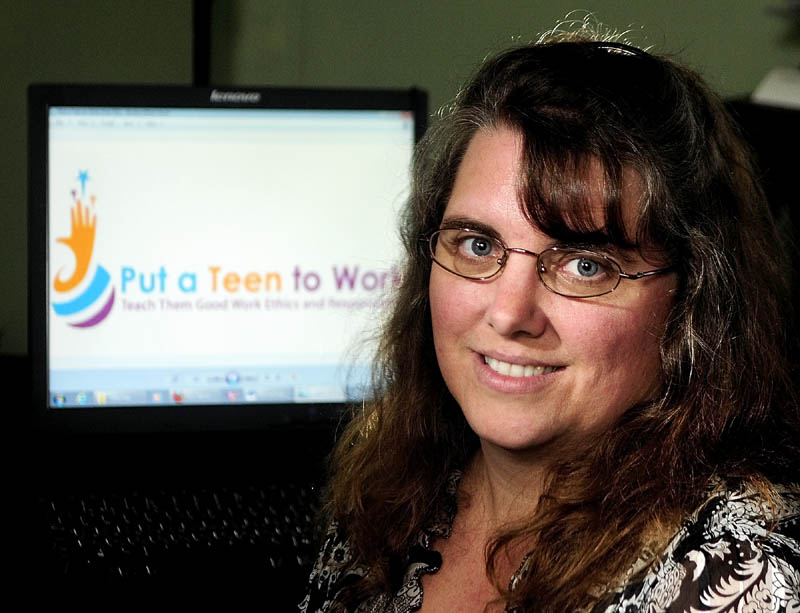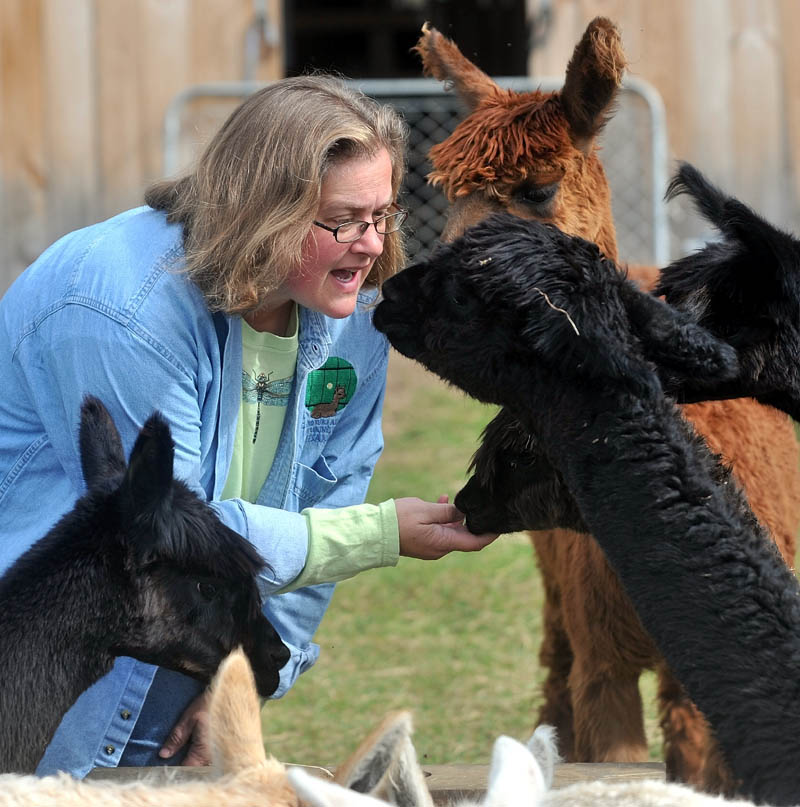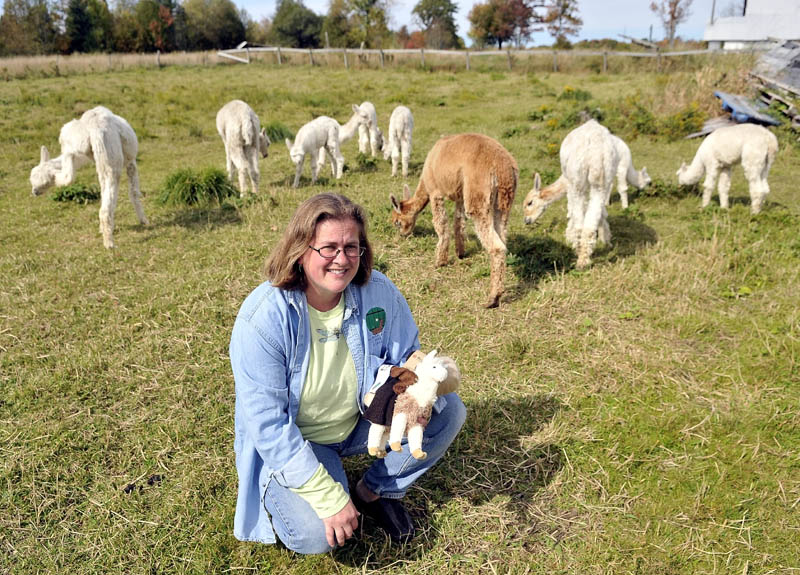PITTSFIELD — When her doctor told her she could no longer work, Angela Godbout turned to the Internet for something to do.
The Readfield mother of two started a website, Put a Teen to Work, which matches teens with people in their community who need help with odd jobs.
She was working two jobs as a medical secretary for the state and as a receptionist for Notify MD, a health care call center. Her son had recently been injured and her husband disabled and the stress was too much, her doctor said.
“I had been home and out of work,” she said. “I like to write and I was looking at freelance sites when I realized that I could do this.”
Now a new high-speed Internet project in Maine could make it easier and faster for web-based entrepreneurs like Godbout to operate.
The Three Ring Binder, a project of the Maine Fiber Company, is a 1,000-mile route of fiber optic cable as thin as human hair that will provide access points to the already-in-place Internet “backbone,” the principal data route between larger networks. It will provide high-speed Internet service to be delivered to businesses, homes and communities across Maine.
“It will be easier and less expensive to get high-speed internet connections out to remote parts of Maine,” said Jeff McCarthy, vice president of business development at the Maine Fiber Company.
The network, which was originally scheduled for completion in December, is open for service and has already contracted to 12 service providers, such as Biddeford-based GWI.
This could be a big help for many small Internet-based businesses, such as Bag End Suri Alpacas in Pittsfield, which is run by Jill McElderry-Maxwell. Her husband, Bruce Maxwell, is the chairman of the computer science department at Colby College.
He said the two main challenges to starting a website or business online are infrastructure and marketing.
“You need to build a website that actually does what you need it to do and you somehow have to get it out there and get people directed to your site,” he said.
Having faster Internet fits into both of these.
“If I was an investor looking into one of these companies, I would say it is a plus to have this in your backyard,” said McCarthy. “It’s a good selling point when trying to promote your idea and it can also make the connection to the provider very easily.”
The faster connection also comes in handy when you are searching for a job or trying to live-stream an alpaca auction so you can buy and sell.
“Alpaca farmers are big Internet people,” said Maxwell. “If you get out into central Maine everyone is on the Internet. All the alpaca farmers are Facebook friends. They have forums and buy and sell alpacas online.”
“I consider it crucial to my business,” said McElderry-Maxwell. “And not only for alpaca farming but for other businesses. Being online there is little cost and no limit to who might see your product.”
She said that compared to 5 years ago, when she started the farm’s website, it is now more crucial for alpaca farmers and other small businesses to have an online presence.
Fletcher Kittredge, CEO of GWI, said that the Three Ring Binder “has already helped us expand high-speed Internet service to eight communities across the state. With this kind of speed available to test and develop the next generation of technology applications, the next Google or Facebook could be born in Maine.”
Godbout, who is making it her full-time work to run Put a Teen to Work, said that starting a website wasn’t the difficult part. She already kept a personal blog, My Crazy Family Life, on WordPress and she contacted the blogging tool provider for direction in starting her own site.
The cost she said was minimal. “I had a shoestring budget,” she said. “I don’t have a lot of money to put into it.”
The site launched in August and so far Godbout says she has seen some traffic, but not many people signing up for services.
Mike Duguay, director of economic development for the city of Augusta, said that resources are there for online entrepreneurs, but that few people come looking for them.
“They don’t need physical buildings so few people reach out to economic development. They don’t know if there’s anything they can do,” he said.
At the same time he said that its hard for development agencies and government to track down Internet entrepreneurs and promote them in communities.
“With a website there are no capital requirements to entry,” said Danny Garin, 22, an economics and government major at Colby College who recently founded a virtual farmers’ market, My Fresh Maine, with a classmate.
“For people looking to start a business it’s a really good way to get your feet wet. You can devote more time to developing a business model without worrying can I pay my rent?”
Rachel Ohm — 612-2368
rohm@mainetoday.com
Send questions/comments to the editors.





